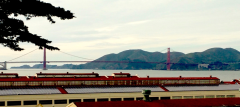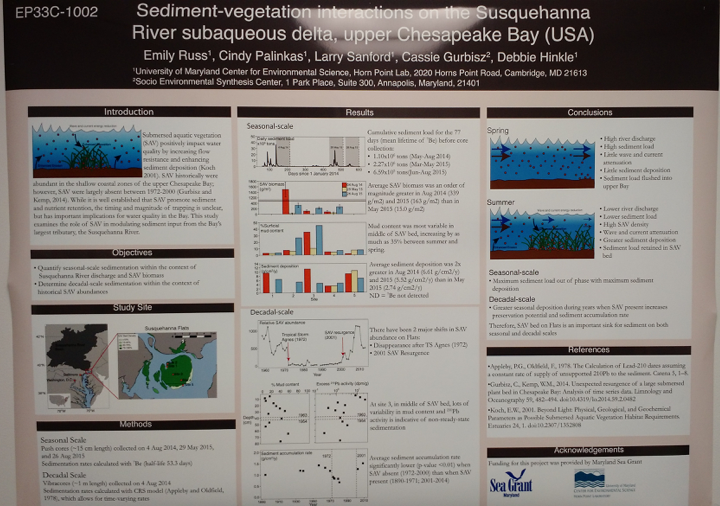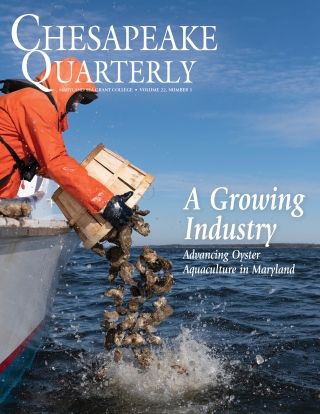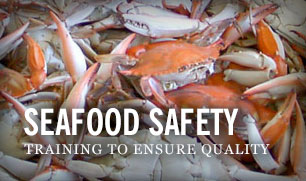Knauss legislative fellowships in Congress help build careers — and they're fun and educational. See our video and fact sheet for details.
How I Overcame My Nerves and Thrived at a National Conference
It was a chilly December morning in Baltimore as I boarded a plane bound for San Francisco. I held tightly my carry-on bag and poster tube, which contained the poster I would be presenting later in the week at the American Geophysical Union (AGU) Fall Meeting. I had never attended AGU, and this was actually my maiden voyage to California.
I began planning for this trip back in late July 2016, when I started putting together my conference abstract. My advisor and I had picked this meeting because of the many professional development opportunities for students, as well as the chance to present my work to the international ecogeomorphology research community, which includes researchers who focus on how landforms are shaped by organisms.
I had been to only one other national meeting prior to this one, but I do not feel like I took full advantage of the student opportunities at that conference. I also must admit that I did not thoroughly read through the schedule and I likely missed several presentations and networking opportunities that would have been pertinent to my research, and I wanted to make sure that did not happen again.
I found the prospect of attending the AGU Fall Meeting intimidating because it is the largest earth and space science conference in the world, and I was worried that I would be forgettable compared to all of the other big names who were there presenting their research.
However, I was determined to make connections with people who studied anything remotely similar to my work on interactions between sediments and vegetation in the upper Chesapeake Bay. As a result, I planned my conference itinerary around poster and oral sessions in coastal morphodynamics and biogeochemistry.
Despite my extensive planning, I do not think I was fully prepared to actually see, in person, so many researchers who had published famous papers on delta processes or marsh geomorphology. My anxiety level was high, and I did not feel confident enough to approach these people. Fortunately, many of these people are colleagues with my advisor, Dr. Cindy Palinkas of the University of Maryland Center for Environmental Science’s Horn Point Laboratory. She waved me over to help me make connections with them. Sure, these people are still the scientific equivalent to rock stars to me, but I have now shaken their hands.
The other major hurdle I encountered at this meeting was figuring out how to make my poster presentation memorable in a bustling hall full of other posters. Fortunately my poster session was on a Wednesday, and I had the opportunity to see several presentations before it was my turn to present. I noticed that the best speakers were enthusiastic and concise, and I decided that those were the two characteristics I wanted to emulate.
|
The poster I presented at AGU. I was so "in the moment" during my poster session that I forgot to ask someone to get a picture of me presenting at the conference! Photo: Emily Russ
|
At the beginning of the poster session, I worked out my nervous energy in my first few spiels to some familiar faces. I feel like my confidence improved with each person who stopped by, which included some “rock stars” in the field of ecogeomorphology, who told me I was doing some cool and important research! What an ego boost!
With only two major meetings under my belt, I would hardly consider myself a conference pro, but I definitely feel like I had a positive experience at AGU and can offer some insight to anyone who has the pre-conference jitters:
1. Plan out your meeting itinerary. Take note of any poster and oral sessions that you want to attend. Also, realize that there are many other events going on, such as student mixers, job information sessions, and special lectures. These can be just as important as the traditional science sessions.
2. Use your advisor to help you make new connections. It is okay if s/he is the only person you know at the meeting. S/he is excited about your research and wants you to be successful. Plus, s/he already has a lot of connections in the research area.
3. Be confident and enthusiastic when presenting. Your research is important, and your audience is there because they are interested in your topic.
4. Take some time away from the conference to explore the surrounding city. I am sure you could fill a whole week with conference activities, but I think you would burn out fast. Block off some time to spend out sightseeing, and enjoy being a tourist! Also, bring comfortable shoes.
5. And lastly, find time to relax because these conferences are overwhelming, and it is important to be able to recharge so you can get back out there the next day!
Sign up to receive email alerts about new posts to the Fellowship Experiences blog
See all posts to the Fellowship Experiences blog





